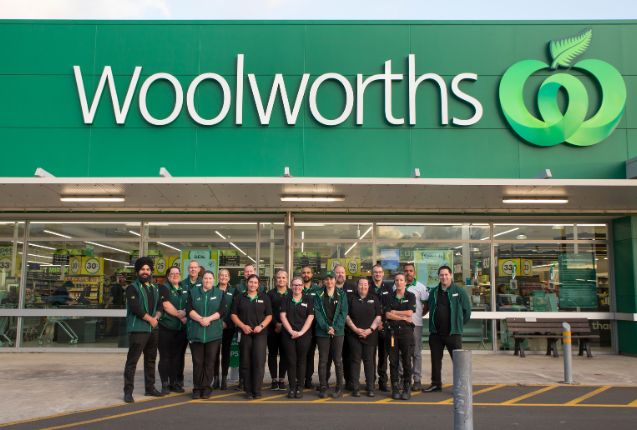
Digital and Social Marketing has been gaining momentum at a rapid rate over the last few years.
It’s now front-and-centre to many, if not most, marketing strategies. But sadly, many marketers have failed to keep pace with the digital and social phenomenon and acquire the skills to work comfortably in these new marketing modes.
Digital marketing is massive overseas and it’s fair to say New Zealand is still catching up, though the economy here is going well and organisations are investing in-house in digital capability. There’s definitely been a spike in digital and social roles being advertised in this marketplace over the last 12 months. Working with clients in the sales and marketing area, it’s very apparent they’re seeking strong digital and social media marketing experience and skills, coupled with the traditional marketing capabilities, i.e. familiarity and skills in the use of print, radio and TV media.
More and more companies are developing in-house digital teams, but are finding their traditional marketers struggle to develop strong digital and social marketing strategies.
Let’s take a step back though. What is this brave new digital/social world? It’s a series of developments that have really grown off the back of a technology revolution around how consumers receive their information. Traditional media are fighting a war with laptops, cellphones, tablets and other visual communication devices that increasingly provide people with all the communications they need. The appetite for information has ballooned and to feed it the world has welcomed FaceBook, Pinterest, Instagram, Twitter, Google and a host of other providers of information.
The dilemma for a marketer is to see how it all fits together into an integrated campaign. Marketing has also moved from a time when reaching the masses was the goal – to a much more targeted delivery, focusing on engaging with customers and potential customers, making the sale, getting them to act or just simply to interact with the brand.
There is an enormous demand for content. Everyone is on their mobile and they want content that is fun, exciting, interesting – and that they can share with their friends. Digital has an insatiable appetite for content.
So the modern marketing environment has to meet that need, and if digital is the delivery mechanism, companies need people who are savvy with those new media – so internal digital teams have Webmasters, Search Engine Optimisers, Word of Mouth specialists and other novel roles.
Or they may still look to external agencies for those skill sets – and agencies have had to find those sorts of marketers quickly too. But the traditional marketers within in-house teams still have to be able to have those strategic conversations around how to employ digital and social tools and techniques, and at the very least understand how they need to be built into a brand campaign.
Agencies have led on this – as you’d expect. They have to be up-to-speed. They don’t see digital as a strange new language; it’s another channel to build into your campaigns as appropriate. But their clients are often lagging, and while they may not be able to justify bringing the technical skills in-house, they need to have traditional marketers on their in-house teams who “get” it.
To be fair much of business is still dominated by traditional approaches, and thus the marketing leadership is still principally traditional in its leanings, particularly in areas like manufacturing. Other sectors, like Banking, are more open to the power of digital and their marketing leadership is beginning to reflect that.
But it is a generational thing. As more and more marketers emerge from our tertiary institutions, and the Internet continues to evolve, those new marketers will gradually percolate into the top jobs. In the meantime, there are a great many excellent traditional marketers missing out on roles or not able to apply for them because they lack a digital or social skill set. The answer, of course, is to upskill and there are plenty of short courses available to beef out the CV with the requisite digital and social smarts. A good starting point is an overview course on digital – on how to use digital media to interact with your customer, for example – rather than jump straight into a highly specialised course. There’s still a place for more conventional marketing; you just need to know how to blend the old and the new, and be able to have conversations with your agencies or your internal team around what is the right mix.
Be clear about what you want
Companies seeking to recruit digital and social whiz kids need to be clear on what they want to achieve in doing so, and how their marketing structure will accommodate that need. Is it a Google Analyst you want – or just someone who understands the strategies around using digital to advance the brand?
Another thing to understand is how demanding some of these roles are. A Social Media specialist – a FaceBook Community Manager for example, has to be constantly in touch with the medium – both in terms of monitoring the traffic and generating or sourcing content. It can be a tiger by the tail – one negative post and a storm can erupt online. It can be 24/7 and hugely tiring. Burnout occurs.
Organisations need to know how to manage their people in those roles. Churn is not uncommon; for many young marketers coming through, a couple of years in a role doing cool stuff may be the limit – and then it’s onto the next big thing. One interesting phenomenon is the reluctance of many younger candidates to work in the digital field for larger corporations which they see as having lots of red tape and being slow to move – whereas digital and social move rapidly.
By Erin Kirk – a Partner with Auckland-based Executive Recruitment consultancy Convergence Partners, specialising in sales and marketing roles in the financial services and consumer products areas.



